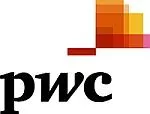- within Finance and Banking topic(s)
- with Senior Company Executives, HR and Finance and Tax Executives
- in Nigeria
- with readers working within the Banking & Credit, Media & Information and Oil & Gas industries
Background
The National Office for Technology Acquisition and Promotion ("NOTAP) was established by the NOTAP Act, Cap. N62 LFN 2004 to monitor the transfer of foreign technology into Nigeria.
NOTAP's objectives are implemented through the evaluation, registration and monitoring of technology transfer agreements between a Nigerian company and its foreign counterparty.
Historically, the process for registration of agreements with NOTAP has been wholly paper-based and done manually by submitting relevant registration documents to the NOTAP head office in Abuja.
However, in a recent public notice, NOTAP announced the introduction of an automated platform for the registration of technology transfer agreements, commencing from 2 September 2019.
Highlights
- The automated registration will apply to all applications for registration of technology transfer agreements (new and renewal applications).
- Applicants can submit applications on the following websites https://techreg.notap.gov.ng/VendorR eg/ or https://www.notap.gov.ng/
Our comments
The platform does not yet have clear modalities for users to operate the automated platform and track applications. This will be critical in ensuring a smooth take-off regarding how the interactions between applicants and NOTAP will work from commencement to completion.
If this automated registration process works effectively, it would reduce the bureaucracy involved in the paperbased registration process and eliminate the logistics and related costs of submitting applications manually to the NOTAP office.
NOTAP approval is a key documentary requirement for the purpose of accessing the official foreign exchange market to make payment to a foreign counterparty for services provided in relation to an eligible agreement. In addition, NOTAP approval is often used by the tax authorities as a condition for granting tax deductions for expenses incurred in relation to such agreements.
Takeaway
The introduction of the automated platform is in line with the ease of doing business initiative of the Presidential Enabling Business Environment Council ("PEBEC"). While this development is commendable, it is important that the modalities for implementation are made public with input from key stakeholders. Also stakeholders should be properly educated on procedures to follow, in order to ensure efficiency in the process.
The content of this article is intended to provide a general guide to the subject matter. Specialist advice should be sought about your specific circumstances.



